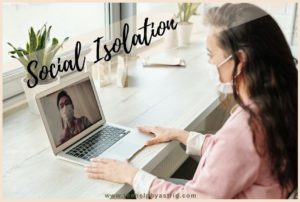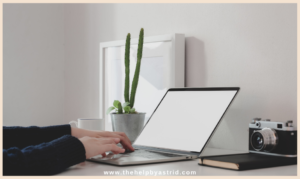
Companies have now adopted the flexible work arrangement for their employees. This means that most people who aren’t absolutely required to go to the office, are mandated by their employees to work from their homes. Working from home makes people feel like they have more control over their workday. We feel like we finally have more time for ourselves because we’ve done away with the long commute and virtually cut short the time it takes to get ready to go to work.
By this time, excitement over the novelty of working from home has already worn out. Most of my colleagues who are new to working from home are already complaining about suddenly feeling overwhelmed, tired, and uneasy. They tell me that their days have bled into one big, never-ending day. I tell them that’s common. I tell them they might have experienced that feeling before. I tell them that they’re probably experiencing burnout. Collective gasp.
They’re always surprised to know that you can get burnt out, even when you’re working from home. But burnout happens when you face elevated levels of stress over a long period of time. Such as the stress we’re all under due to the COVID-19 pandemic. The abrupt disruption in our lifestyle and social isolation can affect both your mental and physical health. Here are some of the common culprits that can lead to work from home burn out:
Blurred lines
Most burn out stems from a lack of work-life balance, which, in real life, is extremely hard to achieve. Top this up with adopting a work from home arrangement, and it makes it harder to achieve that balance. Why? Because there are no forced boundaries that help separate your work from your personal life. The lack of boundaries makes it more convenient to go from professional to personal activities. Nothing’s stopping you from doing a pile of laundry while you’re waiting for that download to come through.
The solution: have a set work schedule and set hard stops for yourself. Pick a block of time for work and focus on doing only work during those times. Of course, you should also do the same for personal time.
The social network
Working from home can be isolating, even if you’re with family. Having interaction with colleagues can break up the monotony and the pressures of family life. That also works vice-versa. Keeping in touch with officemates is harder when you work from home. Sometimes, due to technological restrictions, interactions are limited to instant messages and chats. Work from home employees also finds it difficult not to get real-time feedback on their work assignments and feel like they need more direction when they’re working from home as opposed to working at the office.
The solution: be deliberate about reaching out to colleagues and managers for help and for real-time feedback. Ask for a meeting with your manager so that you can let them know how you’re tracking with work.
How’ve you been loving working from home so far? Got any tips for people who are starting to get burnt out? Let us know in the comments. Remember to work smart and be a blessing to someone today. Stay safe and healthy!
Written by Jaie O. TheHelp



